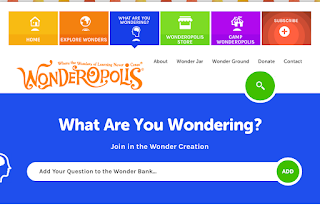Once again, we focus on improving the story through elaboration.
How did I get from this:
1
I wrecked last night. I saw a hole in bike path ahead of me. held on to my handlebars. I tried to turn away. I kept looking at the hole. It was big. I hit the brakes. I hit the hole. I wrecked. My wheel hit the hole and stuck there. But I didn’t stop. I flew over the handlebars.
To this:
2
Last night, I rode my bike down the river bike path. I raced along the straight section by the ash tree. Up ahead, a hole the size of a bear broke the asphalt in the bike path. I gripped my handlebars to skirt the edge where the tree roots flattened. I just kept focusing, staring at the hole. At the last minute, I squeezed the brakes. I skidded towards the pit. Thump! My front wheel hit the hole and stuck there, a dead stop. But I didn’t stop. My body flew over the handlebars like I toss my sister's stuffed elephant behind the couch. I imagine it splats on the carpet; I know I landed splat on my back. Ouch.
~~~~~~~~~~~~~~~~~~
~~~~~~~~~~~~~~~~~~
Which one brings you into the story? Why?
I think the verbs help: here's the difference -- strong verbs [or verb forms] in bold - so the old lady screams!:
1
I wrecked last night. I saw a hole in bike path ahead of me. held on to my handlebars. I tried to turn away. I kept looking at the hole. It was big. I hit the brakes. I hit the hole. I wrecked. My wheel hit the hole and stuck there. But I didn’t stop. I flew over the handlebars.
2
Last night, I rode my bike down the river bike path. I raced along the straight section by the ash tree. Up ahead, a hole the size of a bear broke the asphalt in the bike path. I gripped my handlebars to skirt the edge where the tree roots flattened. I just kept focusing, staring at the hole. At the last minute, I squeezed the brakes. I skidded towards the pit. Thump! My front wheel hit the hole and stuck there, a dead stop. But I didn’t stop. My body flew over the handlebars like I toss my sister's stuffed elephant behind the couch. I imagine it splats on the carpet; I know I landed splat on my back. Ouch.
Yes, there's a lot more detail too in the second one to elaborate with who, what, where, how, why, etc. -- I'll underline the additional details or specific words [usually nouns] here:
1
I wrecked last night. I saw a hole in bike path ahead of me. held on to my handlebars. I tried to turn away. I kept looking at the hole. It was big. I hit the brakes. I hit the hole. I wrecked. My wheel hit the hole and stuck there. But I didn’t stop. I flew over the handlebars.
I wrecked last night. I saw a hole in bike path ahead of me. held on to my handlebars. I tried to turn away. I kept looking at the hole. It was big. I hit the brakes. I hit the hole. I wrecked. My wheel hit the hole and stuck there. But I didn’t stop. I flew over the handlebars.
2
Last night, I rode my bike down the river bike path. I raced along the straight section by the ash tree. Up ahead, a hole the size of a bear broke the asphalt in the bike path. I gripped my handlebars to skirt the edge where the tree roots flattened. I just kept focusing, staring at the hole. At the last minute, I squeezed the brakes. I skidded towards the pit. Thump! My front wheel hit the hole and stuck there, a dead stop. But I didn’t stop. My body flew over the handlebars like I toss my sister's stuffed elephant behind the couch. I imagine it splats on the carpet; I know I landed splat on my back. Ouch.
~~~~~~~~~~~~~~~~~~
~~~~~~~~~~~~~~~~~~
Here's a video to show these revisions of strong verbs and details happened:
Remember! Every word is important -- your word choice in verbs and details makes your writing come alive for your reader.
Share one of your best revisions in the comments below -- a strong verb and a detail.
~~~~~~~~~~~~~~~~~~
Here's a video to show these revisions of strong verbs and details happened:
Remember! Every word is important -- your word choice in verbs and details makes your writing come alive for your reader.
Share one of your best revisions in the comments below -- a strong verb and a detail.




















